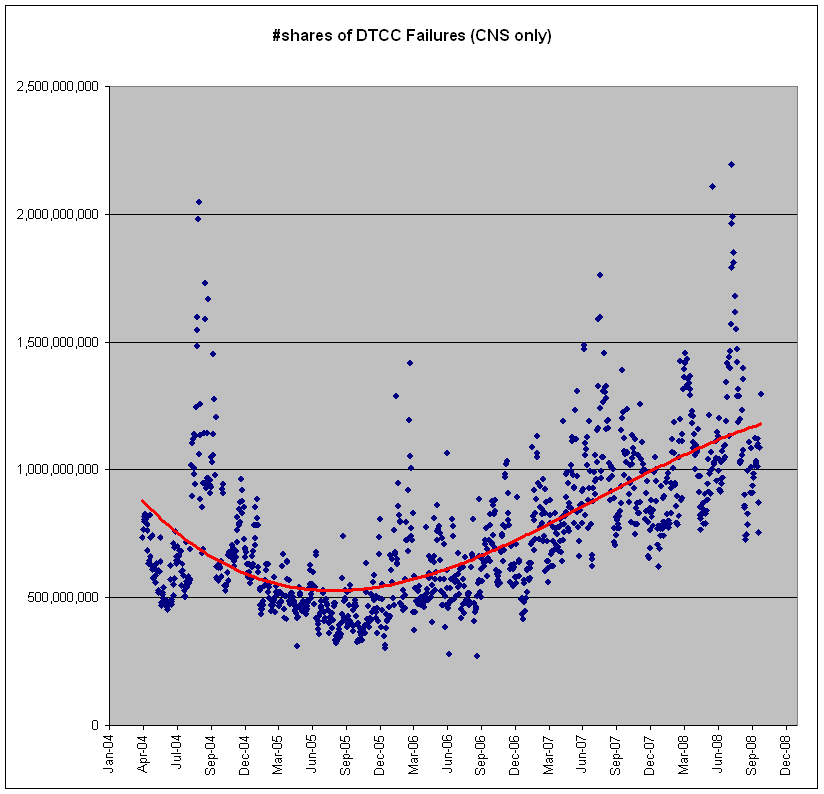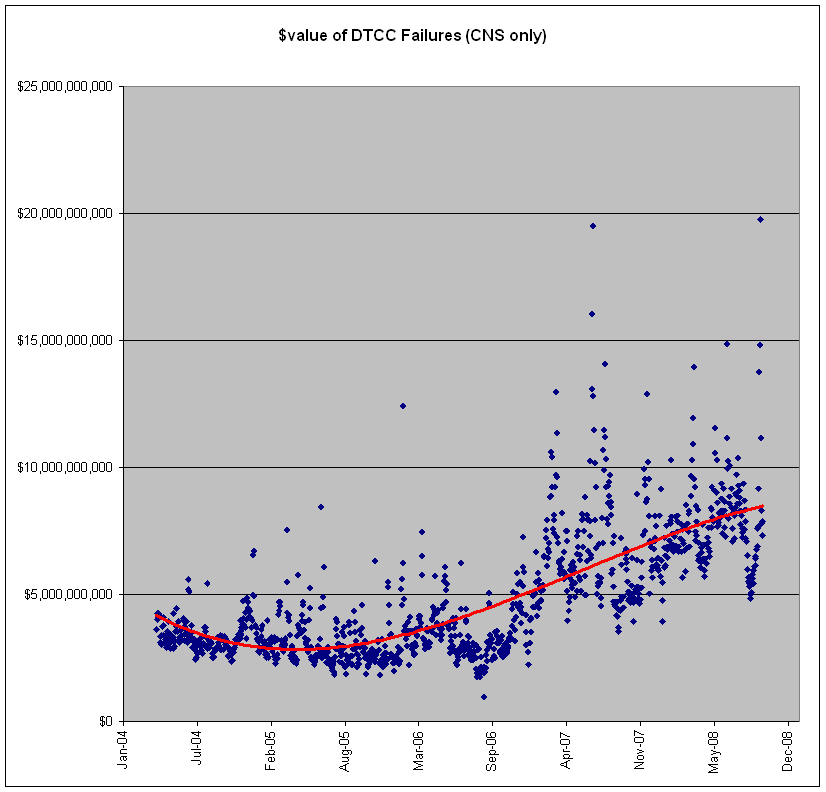Does he really think recent downswings and volatility are due to manipulative short sellers?
http://online.wsj.com/article/SB122878208553589809.html
Unfortunately, in a shortsighted move, the Securities and Exchange Commission (SEC) eliminated the rule in July 2007, just as we were about to need it most. Investors have now been whipsawed by what appears to be manipulative trading, what we used to call "bear raids," which drive stock prices down without warning and at breakneck speed. Average investors feel the deck is stacked against them and are losing confidence in the markets.
For the sake of our children and grandchildren, and to avoid a needless future repeat of a bad situation, it is time to restore the uptick rule.
The uptick rule may seem far from a kitchen-table issue, but it is critically important to ordinary investors. With more than half of all U.S. households invested in the stock market, either directly or through a retirement plan, it matters a great deal. The average 401(k) retirement account has lost 20%-30% of its value over the last 18 months -- more than $2 trillion in retirement savings has been wiped out. Behind those numbers are real people who planned and saved, and who are suddenly facing an uncertain retirement and the prospect of working longer.
In the wake of the Great Depression, the uptick rule was established to eliminate manipulation and boost investor confidence. The rule said that short sales could be made only after the price of a stock had moved up (an "uptick") over the prior sale. This slowed the short selling process making it more expensive and limiting the ability of short sellers to manipulate stocks lower by piling on, driving the share price quickly down and quickly profiting from the downdraft they created. In July 2007, however, the SEC repealed the uptick rule after a brief study. Manipulative short sellers couldn't believe their luck.
The SEC's study took place during a period of low volatility and overall rising stock prices in 2005 through part of 2007 and didn't anticipate the kind of market we are experiencing today. We live in an environment now where 200 point drops or more in the Dow Jones Industrial Average are increasingly common, where a stock losing 20%, 30% or even more of its value in a single day barely warrants a second glance at the ticker. Ironically, it was just this sort of volatility that inspired the regulators of the 1930s to implement the uptick rule in the first place. Without this vital control mechanism, short sellers have been having a field day, betting heavily on lower prices and triggering panicked investors to sell even more.
For the sake of our children and grandchildren, and to avoid a needless future repeat of a bad situation, it is time to restore the uptick rule.
The uptick rule may seem far from a kitchen-table issue, but it is critically important to ordinary investors. With more than half of all U.S. households invested in the stock market, either directly or through a retirement plan, it matters a great deal. The average 401(k) retirement account has lost 20%-30% of its value over the last 18 months -- more than $2 trillion in retirement savings has been wiped out. Behind those numbers are real people who planned and saved, and who are suddenly facing an uncertain retirement and the prospect of working longer.
In the wake of the Great Depression, the uptick rule was established to eliminate manipulation and boost investor confidence. The rule said that short sales could be made only after the price of a stock had moved up (an "uptick") over the prior sale. This slowed the short selling process making it more expensive and limiting the ability of short sellers to manipulate stocks lower by piling on, driving the share price quickly down and quickly profiting from the downdraft they created. In July 2007, however, the SEC repealed the uptick rule after a brief study. Manipulative short sellers couldn't believe their luck.
The SEC's study took place during a period of low volatility and overall rising stock prices in 2005 through part of 2007 and didn't anticipate the kind of market we are experiencing today. We live in an environment now where 200 point drops or more in the Dow Jones Industrial Average are increasingly common, where a stock losing 20%, 30% or even more of its value in a single day barely warrants a second glance at the ticker. Ironically, it was just this sort of volatility that inspired the regulators of the 1930s to implement the uptick rule in the first place. Without this vital control mechanism, short sellers have been having a field day, betting heavily on lower prices and triggering panicked investors to sell even more.


Comment